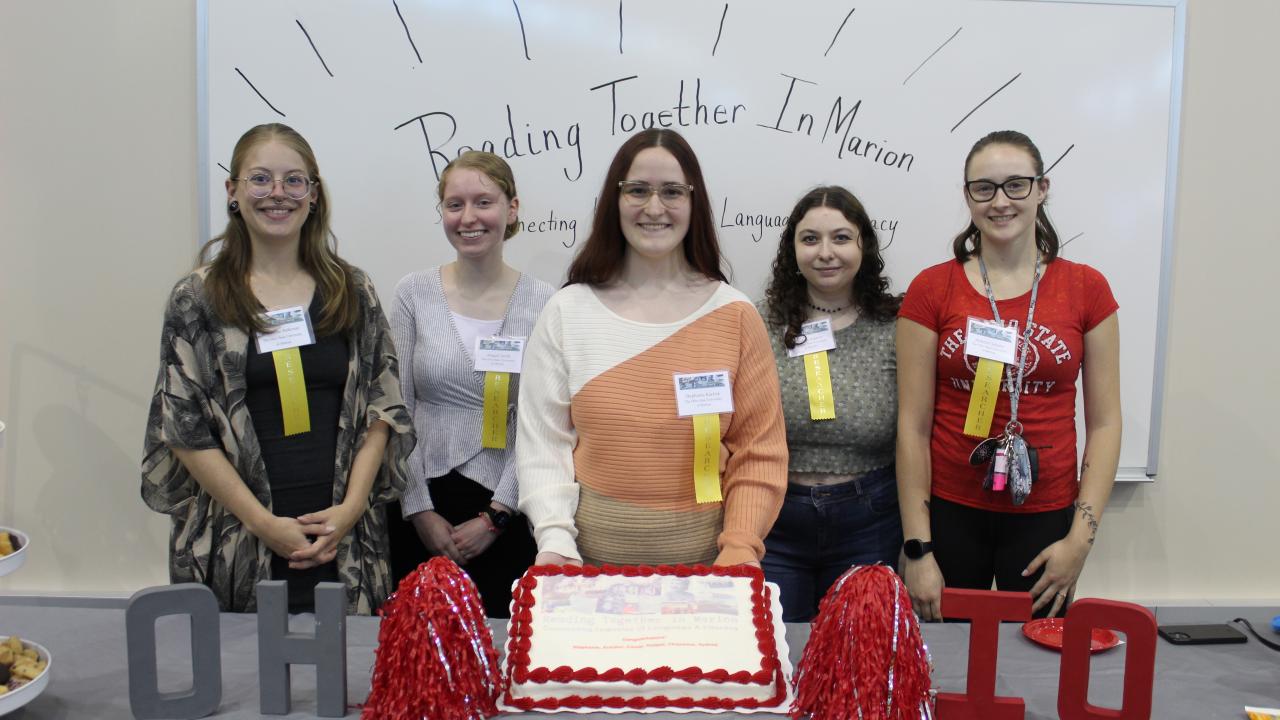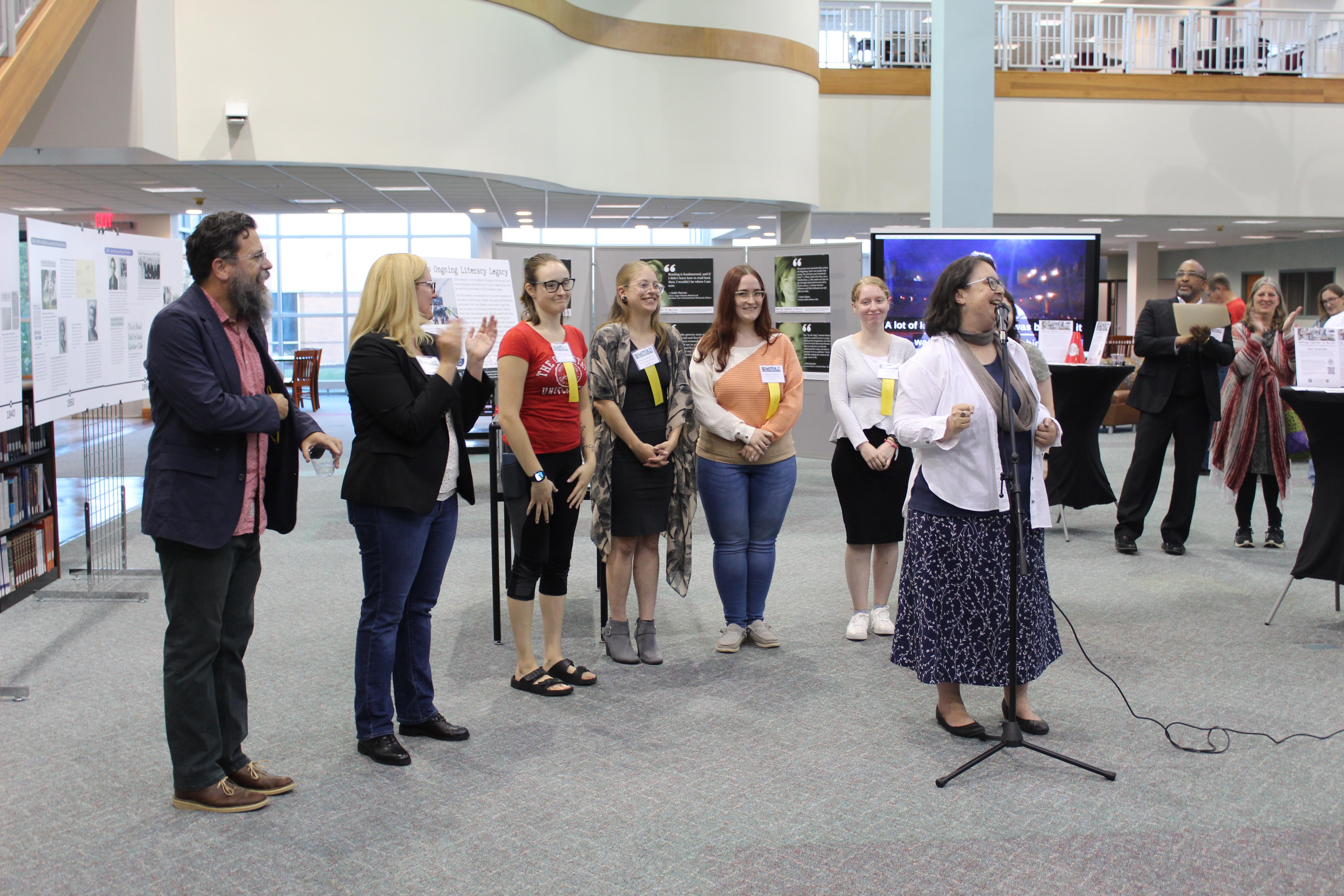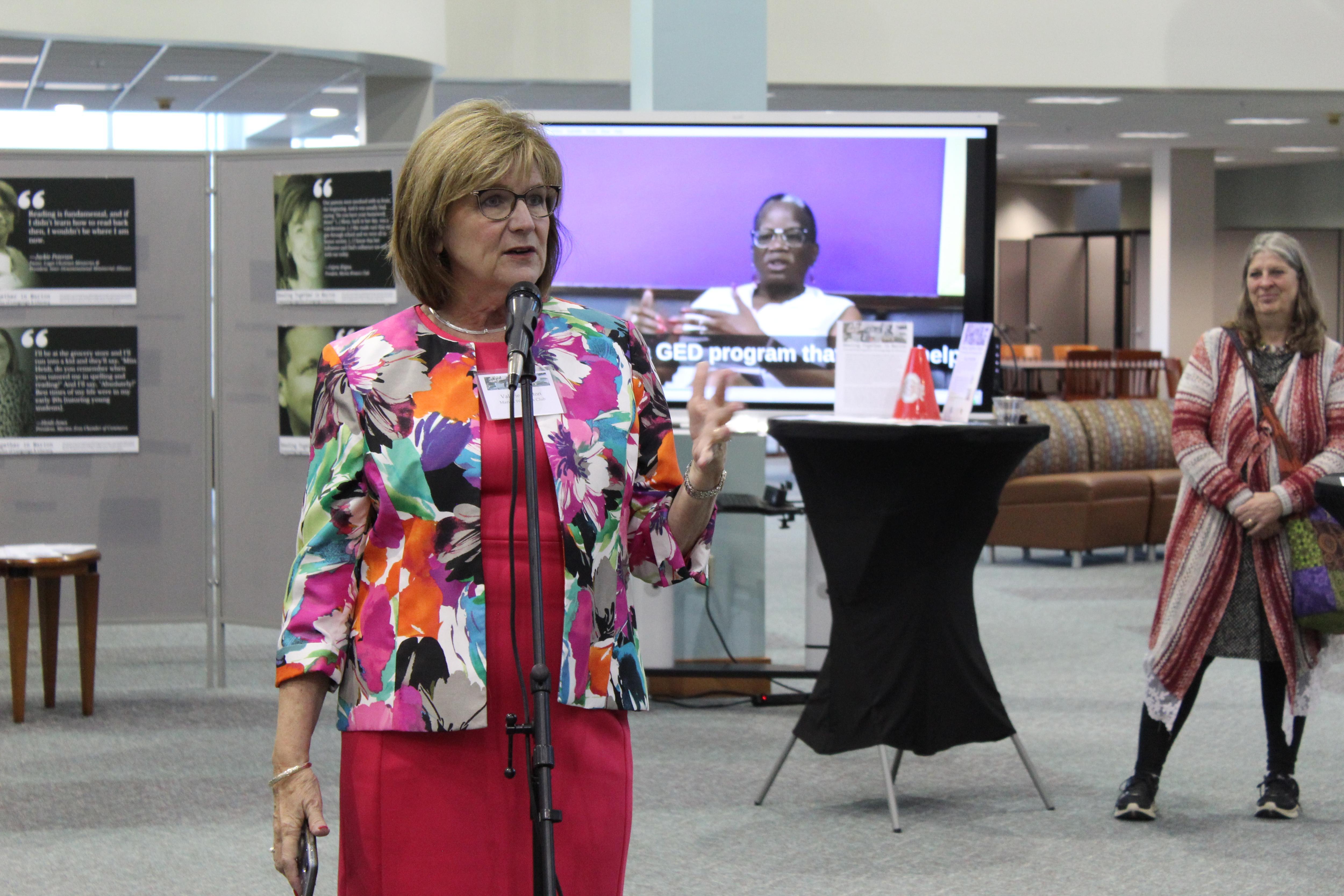Community members contribute to project
A video created to accompany the research project features testimonials from six people about how their lives were impacted by people who encouraged them to read as youngsters. Tara Dyer, Rev. Jackie Peterson, Valerie Wigton, Heidi Jones, Kirk Detwiler, and Greg Rose each shared their experiences from their varied and diverse backgrounds.
"A lot of the (literacy) influence in my culture comes from African American churches, and of course your first piece of literature is the Bible," said Dyer, a current member of the Marion City Schools board of education, retired teacher, and community activist. "So when you ask about the interaction of people helping, that came in the form of helping to learn speeches for Christmas programs or Easter plays or even attending Bible school."
"Reading is fundamental, and if I didn't learn to read back then, I wouldn't be where I am now," said Peterson, pastor of Logos Christian Ministries and president of the Interdenominational Ministerial Alliance of Marion.
"Our parents were involved with us from the beginning," said Wigton, president of the Marion Women's Club. "And it was usually dad saying, 'Do you have your homework done?' ... Mom, back in her day, was a valedictorian. ... She made sure that we got through school and we were all in honor society. ... I know that her influence and Dad's influence are still with me today."
"I'll be at the grocery store and I'll run into a kid and they'll say, 'Miss Heidi, do you remember when you tutored me in spelling and reading?'" said Jones, president of the Marion Area Chamber of Commerce. "And I'll say, 'Absolutely!' Best times of my life were in my early 20s (tutoring young students)."
"If you're in a play, talking about imagination, you take it into the third dimension because you not only have to read and understand the script, you have to interpret it for an audience," Detwiler, executive director of the Marion Palace Theatre, said in regard to his days at "Set the Stage" summer theater camp for youth. "You're basically making the words on the page come to life."
"I've always been a voracious reader," said Rose, dean and director of The Ohio State University at Marion. "I read a lot — all the time — and continue to read a lot, and I think that has had a significantly positive impact on my ability to write."
A traveling exhibit showing highlights of the research project has been created. The exhibit was unveiled for the public during an open house held Sept. 21, appropriately enough, at the library shared by Ohio State Marion and Marion Technical College.
In addition to Ohio State Marion, Marion Women's Club, and Marion Public Library, supporting partners for the project included Let's Read 20 and the Digital Archive of Literacy Narratives.
Email: ecarter@gannett.com


